7 Tips for a Balanced Diet.
More and more people realize that a good diet should be balanced. Apples, bananas, and salad – are all very healthy, but also boring. The goal should not be to eat only fruits but to make your diet complete and varied. We have looked more closely at the question of what constitutes a healthy diet. In this short article, you will discover seven points that you should consider in a balanced diet.
A balanced diet is one that provides the body with all the nutrients it needs to function properly. It includes a variety of different types of foods in the right proportions and ensures that an individual is getting enough of the right types of nutrients to support their overall health. A balanced diet typically includes:
Play The Video: 7 Tips for a Balanced Diet
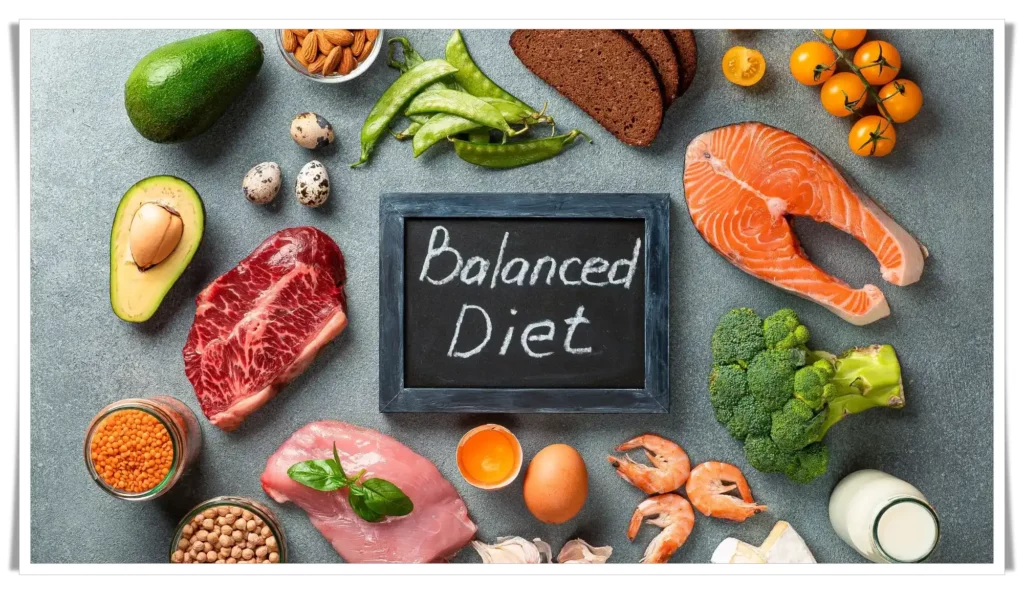
Tips for a Balanced Diet
- Fruits and vegetables: These should make up a significant proportion of a person's diet and provide important vitamins, minerals, and fiber.
- Whole grains: These can include whole wheat, oats, quinoa, and brown rice, and provide important nutrients such as fiber, B vitamins, and minerals.
- Lean protein: This can include sources such as chicken, turkey, fish, beans, and tofu, and is important for building and repairing tissues.
- Healthy fats: These can include sources such as avocado, nuts, and olive oil, and are important for brain health and energy.
- Limited amounts of added sugars and saturated fats: These should be consumed in moderation as they can contribute to weight gain and other health problems.
It is important to remember that no single food contains all the nutrients that the body needs, so it is important to include a variety of different foods in a balanced diet. It is always a good idea to speak to a healthcare provider or a registered dietitian for personalized nutrition advice.
Play The Video: 7 Tips for a Balanced Diet

Tips for a Balanced Diet
7 Tips for a Balanced Diet
1. Versatility
Say goodbye to the notion that certain foods are prohibited. Consuming the full variety of foods is a good idea as long as you pay attention to their nutrients and energy content. Your choice should consist of an appropriate quantity and combination of nutrient-rich and low-energy foods. If possible, you should not eat too many pre-prepared foods or fast food.
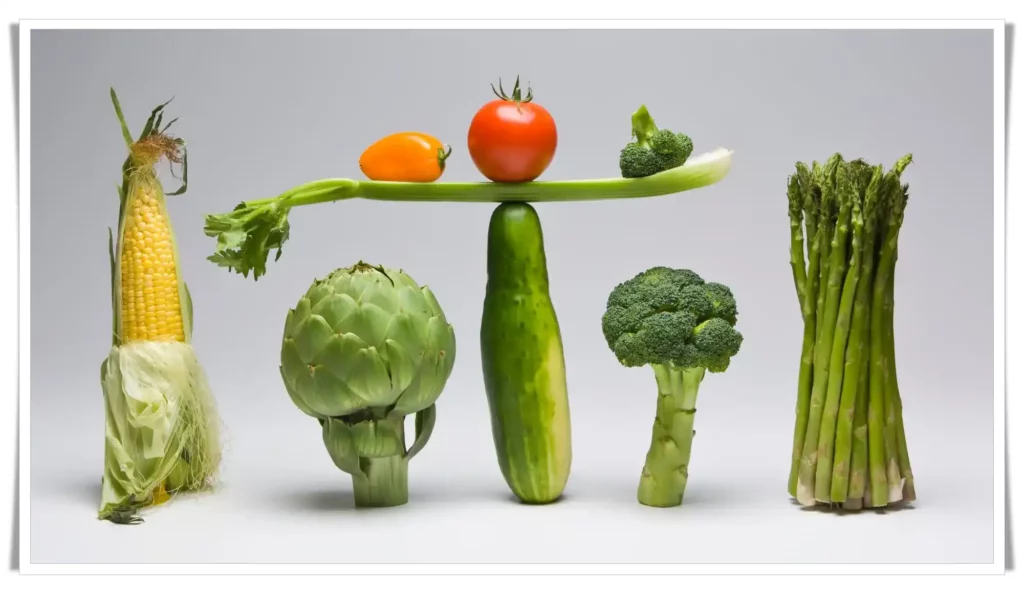
Tips for a Balanced Diet
- Eat a variety of different types of foods: To get all the nutrients your body needs, it is important to include a variety of different types of foods in your diet. This can include a variety of fruits and vegetables, whole grains, lean proteins, and healthy fats.
- Choose whole, unprocessed foods: Whole, unprocessed foods are often more nutrient-dense than processed foods. Try to include a variety of whole, unprocessed foods in your diet, such as fresh fruits and vegetables, whole grains, and lean proteins.
- Portion sizes: Pay attention to portion sizes, as it is easy to consume more calories than you need if you eat too much. Use measuring cups or a food scale to help ensure that you are getting the right amount of each food group.
- Read labels: When shopping for food, read the labels to get an idea of the nutrients that different foods provide. This can help you make more informed choices about what to include in your diet.
- Plan ahead: Planning your meals and snacks in advance can help you make healthier choices and ensure that you are getting a balanced diet.
- Be flexible: Don't be too strict with yourself. It is okay to indulge in your favorite foods every once in a while, as long as they are part of an overall healthy diet.
Remember, everyone's nutritional needs are different, so it is important to speak to a healthcare provider or a registered dietitian for personalized nutrition advice.
2. Cereal products
Bread, noodles, potatoes, and rice are indispensable to our diet. And that is also good because they are rich in vitamins, fiber, and minerals. If they are made of whole grain, it is all the better. It is best to combine these foods with low-fat ingredients.
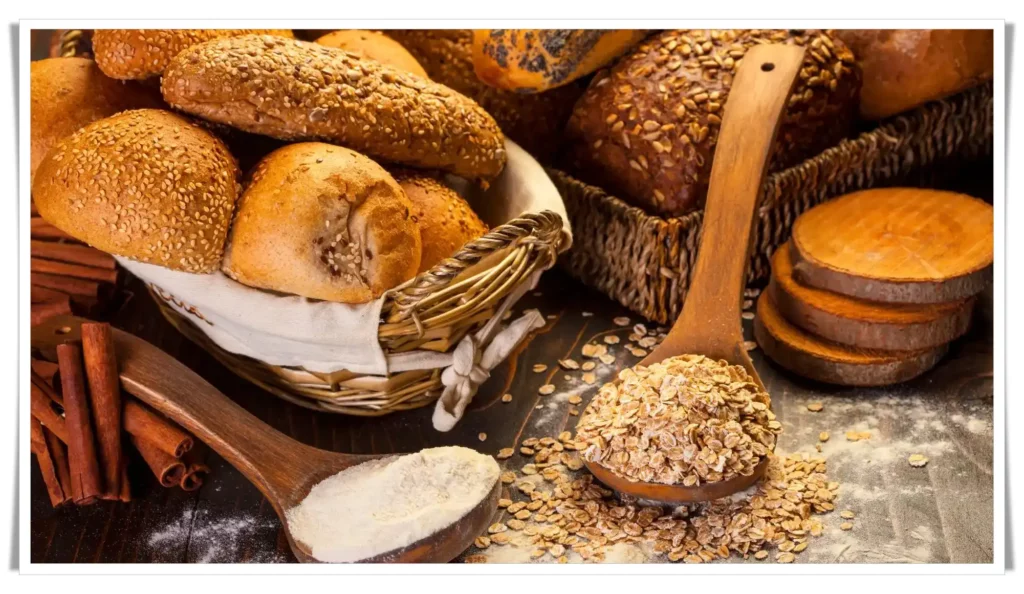
Tips for a Balanced Diet
Cereal products, such as bread, rice, and pasta, can be a healthy and convenient part of a balanced diet. Here are a few tips for including cereal products in your diet:
- Choose whole grains: Whole grains, such as whole wheat bread, brown rice, and quinoa, are higher in fiber and other nutrients than refined grains, such as white bread and pasta.
- Read labels: When shopping for cereal products, look for those made with whole grains that have a lower sugar and sodium content.
- Portion sizes: Be mindful of portion sizes when consuming cereal products, as it is easy to consume more calories than you need if you eat too much. Use measuring cups or a food scale to help ensure that you are getting the right amount.
- Combine with other nutrients: To make your meals more balanced, try pairing cereal products with a source of protein, such as chicken or tofu, and a serving of fruits or vegetables.
- Experiment with different types: There are many different types of cereal products available, such as bread, rice, pasta, and quinoa. Try experimenting with different types to add variety to your meals.
Remember, everyone's nutritional needs are different, so it is important to speak to a healthcare provider or a registered dietitian for personalized nutrition advice.
3. Vegetables and fruits
You have probably heard that many nutrition centers recommend eating 3 servings of veggies and 2 servings of fruit every day. What exactly you eat is left to your preference. A serving can also be a glass of freshly squeezed juice. A good rule of thumb is to eat a portion of fruit or vegetables at each meal. So you have the food of the five portions easily integrated into your daily routine.

Tips for a Balanced Diet
Watch this short video ”Let The Food Be Your Medicine”, we will be learning how to live longer and be healthy by implementing good food and healthy acting based on long oriental experience!
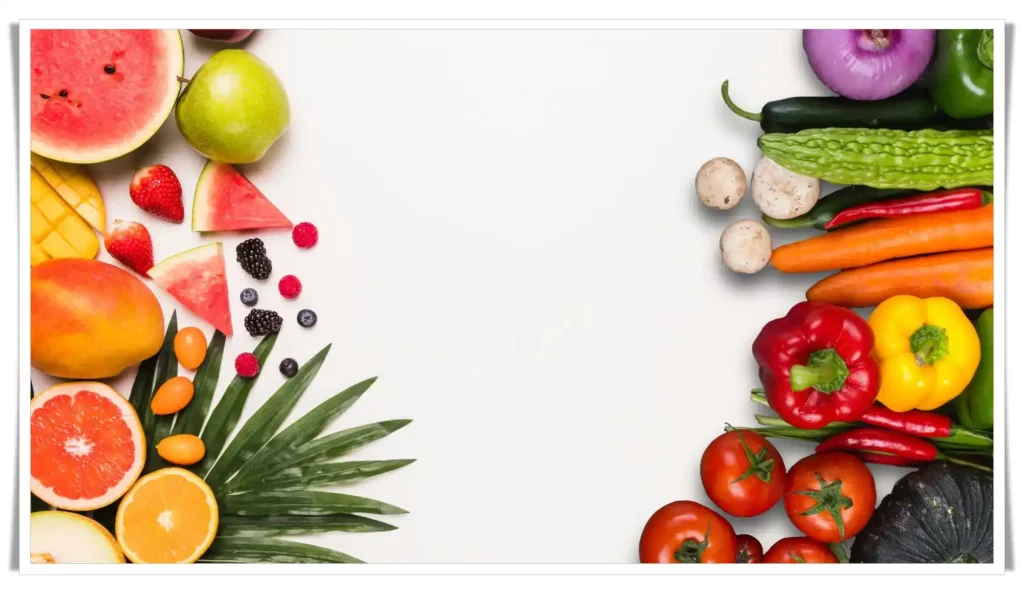
Tips for a Balanced Diet
Vegetables and fruit are important components of a healthy, balanced diet. They are rich in nutrients and fiber and can help to reduce the risk of a number of chronic diseases. Here are a few tips for including vegetables and fruit in your diet:
- Eat a variety: To get the most nutrients, aim to eat a variety of different types of vegetables and fruit. Choose a range of colors and try to include both fresh and frozen options.
- Make them a focus: Make vegetables and fruit the focus of your meals and snacks, rather than just a side dish. Try adding vegetables to sandwiches and salads, and fruit to yogurt and oatmeal.
- Keep them convenient: To make it easier to include vegetables and fruit in your diet, keep them washed and cut in the fridge, or freeze them for later use.
- Experiment with different preparation methods: There are many different ways to prepare vegetables and fruit, such as roasting, grilling, and blending. Try experimenting with different methods to find what you like best.
- Don't forget frozen and canned options: Fresh produce is great, but frozen and canned options can be convenient and just as nutritious. Just be sure to choose options with no added sugars or sodium.
4. Meat
Fish contains many valuable nutrients and is, therefore, perfect in terms of meat. If you still prefer a different kind of meat, we recommend lean pieces of poultry, pork, veal, or beef.
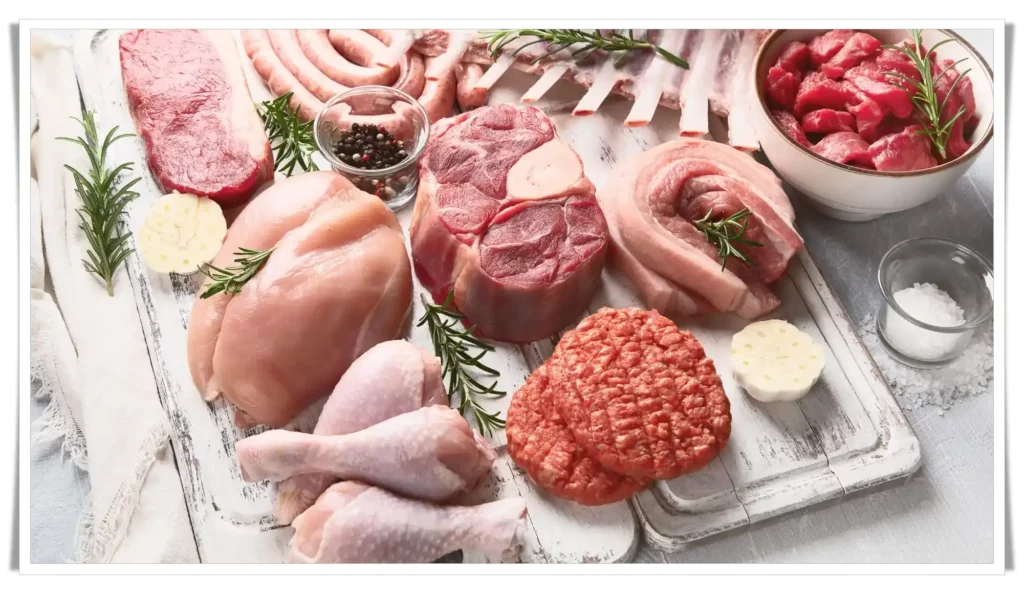
Tips for a Balanced Diet
Meat can be a healthy and nutritious part of a balanced diet. It is a good source of protein, which is important for building and repairing tissues. Here are a few tips for including meat in your diet:
- Choose lean cuts: To reduce the amount of saturated fat in your diet, choose lean cuts of meat, such as chicken, turkey, and pork tenderloin. Trim visible fat before cooking, and remove the skin from poultry.
- Go for variety: Instead of just eating red meat, try incorporating a variety of different types of meat into your diet, such as poultry, fish, and plant-based proteins like beans and tofu.
- Pay attention to portion sizes: It is important to be mindful of portion sizes when consuming meat, as it is easy to consume more calories than you need if you eat too much. A serving of meat is typically 3-4 ounces (85-113 grams) cooked, or about the size of a deck of cards.
- Consider your cooking methods: To reduce the amount of saturated fat and calories in your meals, try grilling, baking, or broiling meat instead of frying it.
- Make plant-based proteins a part of your diet: Plant-based proteins, such as beans, lentils, and tofu, can be a healthy and delicious alternative to meat. They are high in protein and fiber and low in saturated fat.
5. Less fat
Stick to vegetable oils and fats. Keep in mind that fat is often included in many other products. A total of 60-80 grams of fat per day is sufficient.
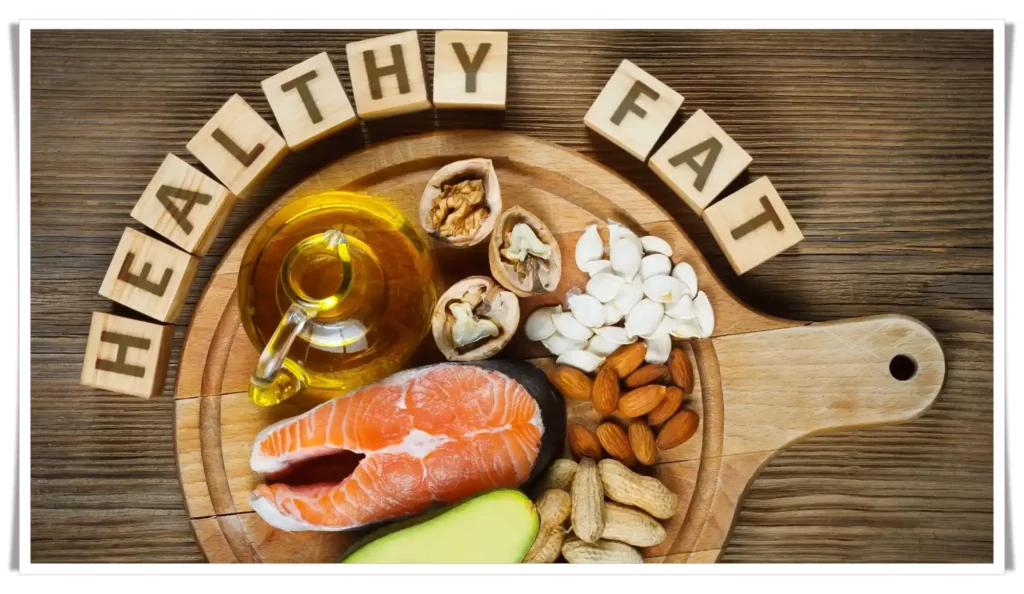
Tips for a Balanced Diet
6. Movement
Good food is often not enough. It is necessary that you move regularly. The recommendation is 30 to 60 minutes of sports per day. Use the stairs instead of the elevator, walk short distances on foot or ride a bike – all of these will help you, while, at the same time, protecting the environment.

Tips for a Balanced Diet
7. Lots of water
And above all is water. Drinking 1.5 to 2 liters of water per day will cover your bodily needs. Very sugary drinks promote weight gain in the long term and should be avoided. Alcohol should not be consumed excessively.
You can also find valuable information about the 6 Mistakes You Need to Avoid When Starting Your Diet if you click here!
Please, Mind Of These Observations:
Fresh Food
Try to eat a lot of fresh food. One tip for cutting down on processed foods: Shop the perimeter of the store, where the fresh food is located. The more processed a food, the higher price you are going to pay, sticking to whole foods in natural form is always less expensive and healthier. Look at the unit price. This helps you to compare the cost of a product per serving and can help you make the most cost-effective choice or get the best value for your money. Overall, self-prepared, fresh food will contribute to your well-being.

Tips for a Balanced Diet
Health Condition
Get tips on cutting down on salt in your diet, as well as eating healthily, regular exercise may help reduce your risk of getting serious health conditions. Being overweight or obese can lead to health conditions, such as type 2 diabetes, certain cancers, heart disease, and stroke.
Think about how you can improve your biggest sleep disruptors and know this: Sleep deprivation can perpetuate serious health conditions, as well as negatively affect your mood, motivation, and energy levels.
Weight Loss
Whole foods such as beans, nuts, seeds, grains, fruits, vegetables, herbs, tubers (for example, potatoes and yams), and fungi (mushrooms) are high in fiber, have many health benefits, and are linked to lower rates of various diseases while promoting weight loss.
Blood Pressure
People with high blood pressure are more likely to develop heart disease or have a stroke. Get tips on cutting down on sugar in your diet Eating too much salt can raise your blood pressure.
Eating more fruit and vegetables can help significantly reduce your risk for a number of chronic diseases, including high blood pressure, type 2 diabetes, heart disease, obesity, and cancer. Veganism isn’t a requirement for clean eating though-just eating less meat can help reduce your blood pressure, reduce your risk of heart disease, and help keep your weight in check. Sodium can contribute to high blood pressure and cause you to feel thirsty and thus drink more. If you drink too much between dialysis treatments this could lead to an increase in your blood pressure which is called hypertension.
If you have questions or want to comment, please leave them below and I will answer as soon as I can. Thank you for reading ''7 Tips for a Balanced Diet. All You Need To Know!''

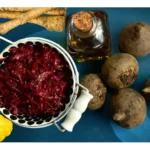
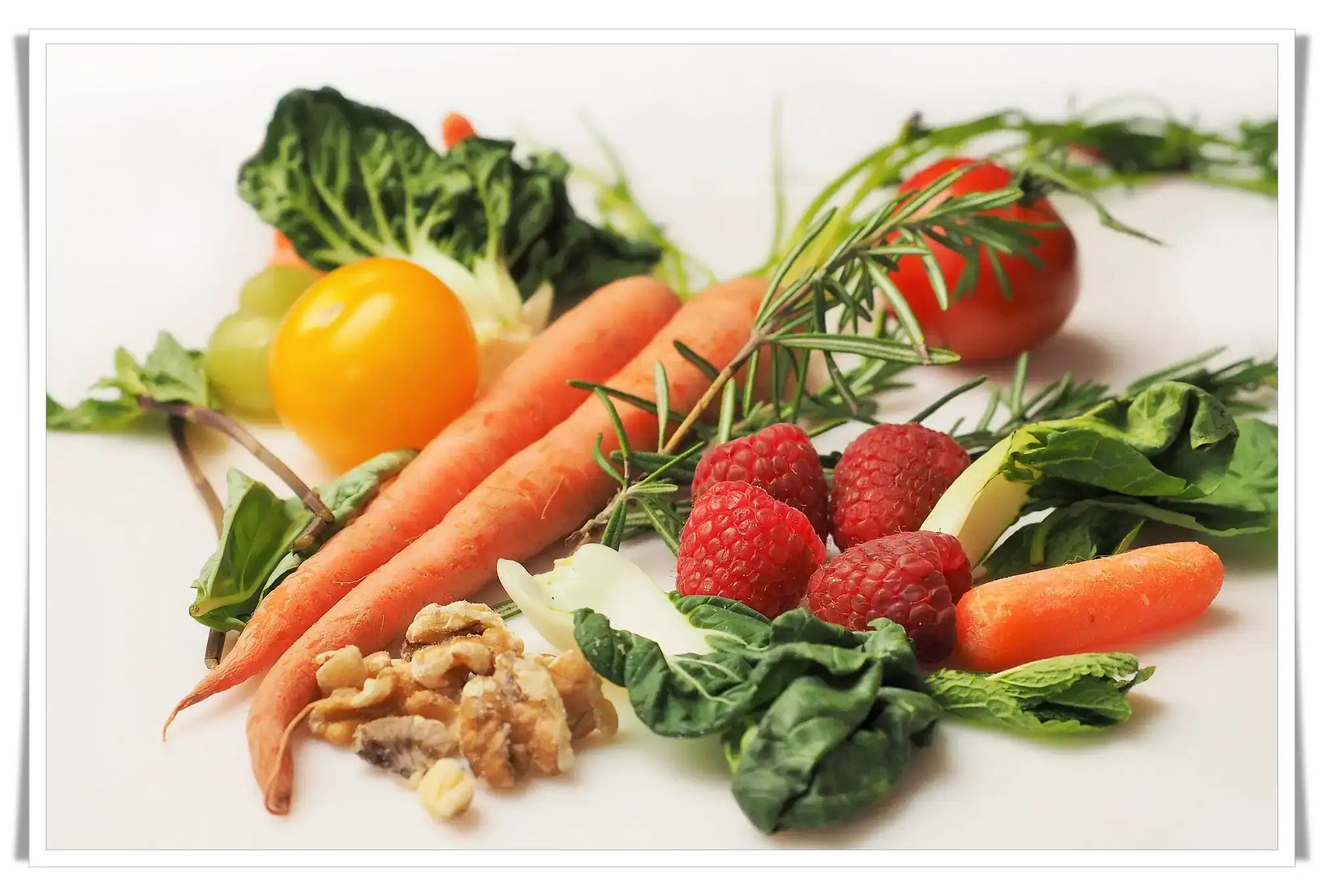


Pingback: 6 Mistakes You Need to Avoid When Starting Your Diet - bc-educate
Your point of view caught my eye and was very interesting. Thanks. I have a question for you.
Wow, wonderful weblog format! How lengthy have you ever
been blogging for? you make blogging look easy. The whole glance of your website is wonderful, as neatly as
the content! You can see similar: dobry sklep and here
sklep internetowy
Good post. I learn something new and challenging on blogs I stumbleupon everyday.
It’s always useful to read articles from other writers and practice something from their web sites.
I saw similar here: E-commerce